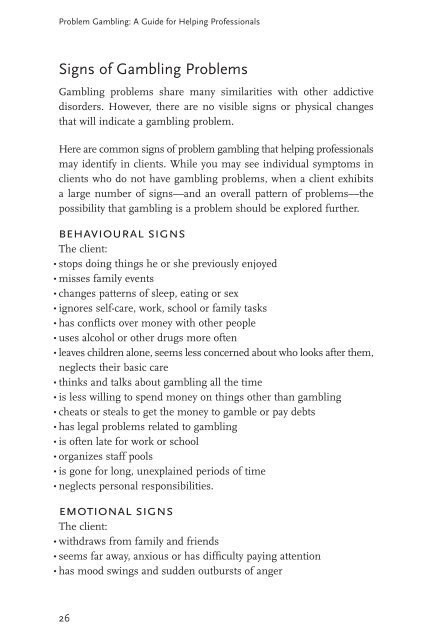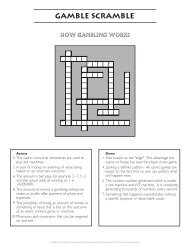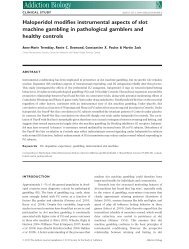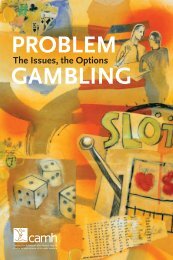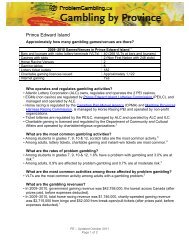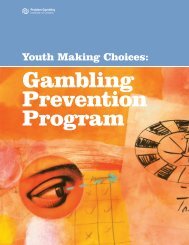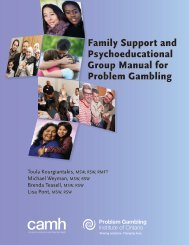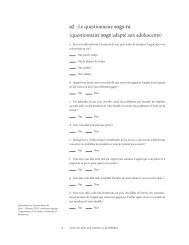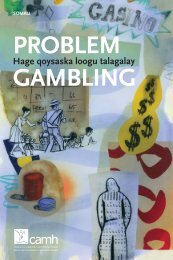Problem Gambling: A Guide for Helping Professionals
Problem Gambling: A Guide for Helping Professionals
Problem Gambling: A Guide for Helping Professionals
You also want an ePaper? Increase the reach of your titles
YUMPU automatically turns print PDFs into web optimized ePapers that Google loves.
<strong>Problem</strong> <strong>Gambling</strong>: A <strong>Guide</strong> <strong>for</strong> <strong>Helping</strong> <strong>Professionals</strong><br />
Signs of <strong>Gambling</strong> <strong>Problem</strong>s<br />
<strong>Gambling</strong> problems share many similarities with other addictive<br />
disorders. However, there are no visible signs or physical changes<br />
that will indicate a gambling problem.<br />
Here are common signs of problem gambling that helping professionals<br />
may identify in clients. While you may see individual symptoms in<br />
clients who do not have gambling problems, when a client exhibits<br />
a large number of signs—and an overall pattern of problems—the<br />
possibility that gambling is a problem should be explored further.<br />
behavioural signs<br />
The client:<br />
• stops doing things he or she previously enjoyed<br />
• misses family events<br />
• changes patterns of sleep, eating or sex<br />
• ignores self-care, work, school or family tasks<br />
• has conflicts over money with other people<br />
• uses alcohol or other drugs more often<br />
• leaves children alone, seems less concerned about who looks after them,<br />
neglects their basic care<br />
• thinks and talks about gambling all the time<br />
• is less willing to spend money on things other than gambling<br />
• cheats or steals to get the money to gamble or pay debts<br />
• has legal problems related to gambling<br />
• is often late <strong>for</strong> work or school<br />
• organizes staff pools<br />
• is gone <strong>for</strong> long, unexplained periods of time<br />
• neglects personal responsibilities.<br />
emotional signs<br />
The client:<br />
• withdraws from family and friends<br />
• seems far away, anxious or has difficulty paying attention<br />
• has mood swings and sudden outbursts of anger<br />
26


